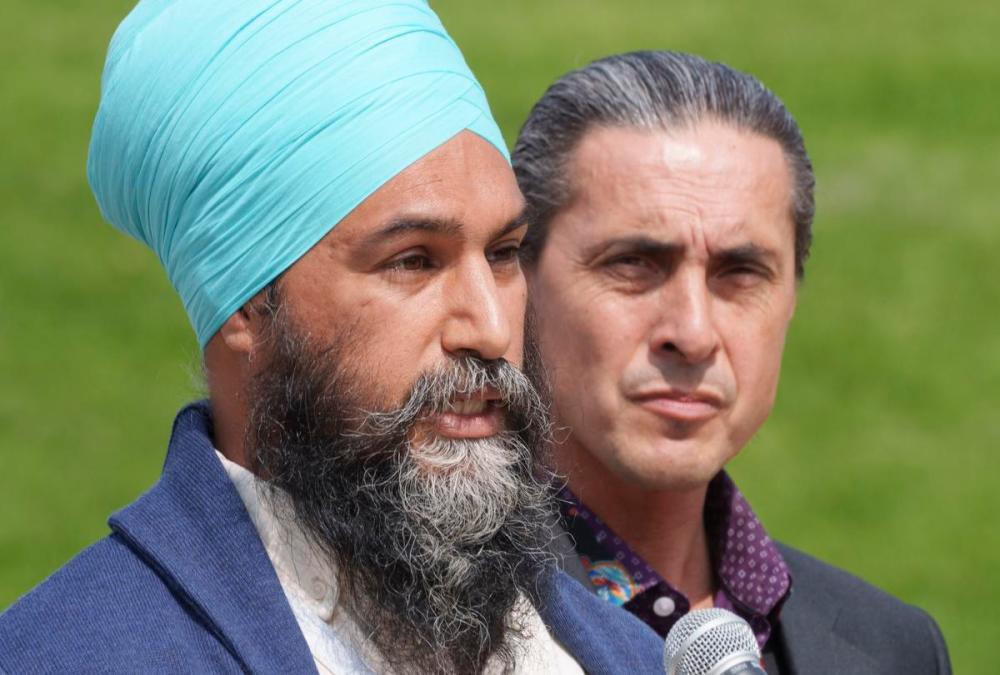Canada is in the midst of a ‘hate crime crisis.’ Why aren’t federal leaders talking about it?
Advertisement
Read this article for free:
or
Already have an account? Log in here »
To continue reading, please subscribe:
Monthly Digital Subscription
$0 for the first 4 weeks*
- Enjoy unlimited reading on winnipegfreepress.com
- Read the E-Edition, our digital replica newspaper
- Access News Break, our award-winning app
- Play interactive puzzles
*No charge for 4 weeks then price increases to the regular rate of $19.00 plus GST every four weeks. Offer available to new and qualified returning subscribers only. Cancel any time.
Monthly Digital Subscription
$4.75/week*
- Enjoy unlimited reading on winnipegfreepress.com
- Read the E-Edition, our digital replica newspaper
- Access News Break, our award-winning app
- Play interactive puzzles
*Billed as $19 plus GST every four weeks. Cancel any time.
To continue reading, please subscribe:
Add Free Press access to your Brandon Sun subscription for only an additional
$1 for the first 4 weeks*
*Your next subscription payment will increase by $1.00 and you will be charged $16.99 plus GST for four weeks. After four weeks, your payment will increase to $23.99 plus GST every four weeks.
Read unlimited articles for free today:
or
Already have an account? Log in here »
Hey there, time traveller!
This article was published 26/08/2021 (1571 days ago), so information in it may no longer be current.
OTTAWA—New data shows that in 2019 Canadians self-reported an estimated 223,000 incidents they felt were motivated by hate — an extreme contrast to the number of incidents reported to police that same year.
According to data pulled from Statistics Canada’s 2019 General Social Survey, around 130,000 of the self-reported incidents were deemed violent by the person reporting the event, while reports of non-violent acts, including vandalism and theft of household and personal property, accounted for around 94,000 incidents.
The self-reported numbers dwarf the 1,951 incidents that police investigated as hate crimes in 2019, with the discrepancy between the numbers raising questions about how much is being reported to officials and the magnitude of hate in Canada.

The Canadian Anti-Hate Network, the organization that first requested the data from Statistics Canada and shared it with the Star, attributes the gap partly to communities which may be fearful of police, as well as a failure to properly label incidents as ones motivated by hate.
The organization has called on all federal parties to put in place an action plan to address what it calls the “hate crime crisis.”
And on the campaign trail itself, political leaders criss-crossing the country and candidates canvassing the streets aren’t immune.
NDP Leader Jagmeet Singh, who encountered racist remarks during the 2019 campaign and faced them again in recent days, said Wednesday that the “climate of hate” in Canada makes people feel like they don’t belong.
“I don’t focus on myself when it comes to those moments. But I do think about the rise of hate that a lot of people have to face. I think about kids growing up with a rise in anti-Asian hate,” said Singh, sharing the story of a Chinese constituent who warned her mother to stop going on evening walks.
“I’m worried about people from the Muslim community, who are worried because of the attacks on Muslims,” he said. “I’m worried about anti-Semitism. We’ve seen attacks on synagogues, attacking and targeting Jewish people.”
On Thursday, Liberal candidate François-Philippe Champagne tweeted several images of his campaign vehicle and election signs after they were vandalized that morning. Two swastikas were spray-painted on one sign, which features images of Champagne and Liberal Leader Justin Trudeau.
Fellow Liberal candidate Anthony Housefather also shared a photo of his defaced election signs earlier this week.
“Each day of the last week, Nazi symbols have been drawn on my posters. This antisemitism will not stop me but it can easily deter good people from entering politics,” Housefather tweeted, denouncing similar acts of vandalism that have appeared on other candidates’ campaign materials.
Mustafa Farooq, CEO of the National Council of Muslim Canadians (NCCM), called the incidents “atrocious” and “disturbing”.
But he also questioned why political leaders have yet to materially address Canada’s “influx of hate” during their election events.
“It’s incredibly odd to me that this has not become a major question on the campaign trail,” he said.
In the wake of the London, Ont. attack that left four members of a Muslim family dead, the national council released more than 60 policy recommendations aimed at tackling hate, including the creation of a hate crime accountability unit in each province that would improve the way incidents are processed, investigated and monitored.
Raisa Patel is an Ottawa-based reporter covering federal politics for the Star. Follow her on Twitter: @R_SPatel


















